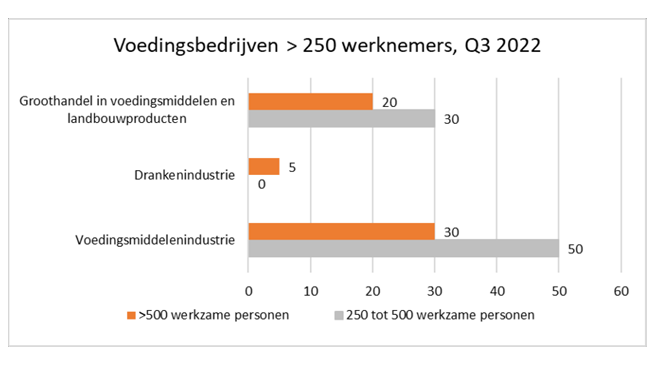
New European directives force large companies to compile and publish their sustainability reports even more sharply. Are these in line with the Paris climate accords and will companies' implementation agendas achieve the set (intermediate) goals? That is the core of the Corporate Sustainability Reporting Directive (CSRD). Transparently documenting sustainability performance in an annual report is a daunting task for many companies. Think about making sustainability choices, setting goals, policy-making and implementation, and data collection. And this is what companies have to start reporting on.
The CSRD reporting requirement applies to listed companies for the reporting year 2024. Companies meeting two of three CSRD criteria will follow a year later, and SMEs another year later. The final implementation schedule is yet to be decided. This is expected to happen in October 2022.
Supermarkets and large food companies covered by the International Corporate Social Responsibility IMVO legislation will start questioning their suppliers about their approach and record. For longer chains, there will also be translation to suppliers of suppliers. In this way, legislation for larger companies will increasingly fall to smaller companies.

Five years ago, Swinkels Family Brewers decided to focus on circularity. With help from the Ellen MacArthur Foundation, it developed its own calculation methodology, which was used to set up 12 programmes. This enabled the company to calculate that it was 56% circular over 2021. For 2025, the target stands at 75%. The parameters are already there, but whether they match the CSRD standards is still unclear. What is important is that the company is well prepared and has set the sustainability course from intrinsic motivation and the strength of its own company. According to Marthijn Junggeburth, sustainability manager at Swinkels Family Brewers, "sustainability reporting is not an imposed trick, but rather a valuable journey". This is also how Verstegen Spices sees it: "Your impact is much bigger and deeper if you do it from conviction and not from legislation".
1. Break down your sustainability goals into small pieces. Start with the largest supply chains and make agreements on achieving full transparency within a certain period, e.g. two years.
2. Inner conviction is the very best foundation for your sustainability ambitions. Make it fun, exciting and challenging. If you start seeing it as something you have to do because someone else wants you to, you won't get there.
3. Sit down for an afternoon with some keypersons in your company and think about sustainable impact, what you get satisfaction from and start working on that.
4. Don't set aside a reserved sustainability budget to cope with sharply rising procurement costs for raw materials, energy and high inflation to solve today's problems. Then you will get much bigger problems in the longer term because the climate crisis will remain.
5. Want to know more about CSRD? Watch the live ING Webinar on 26 September 2022, from 3.30pm to 4.30pm.
Read the full article on ing.nl
Source: Beeld: ©Shutterstock.com/everythingpossible